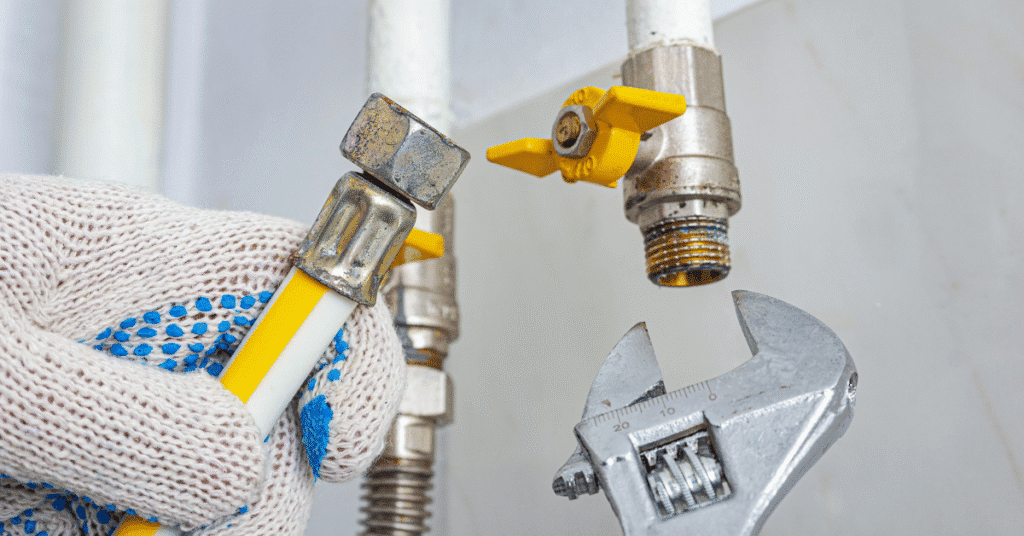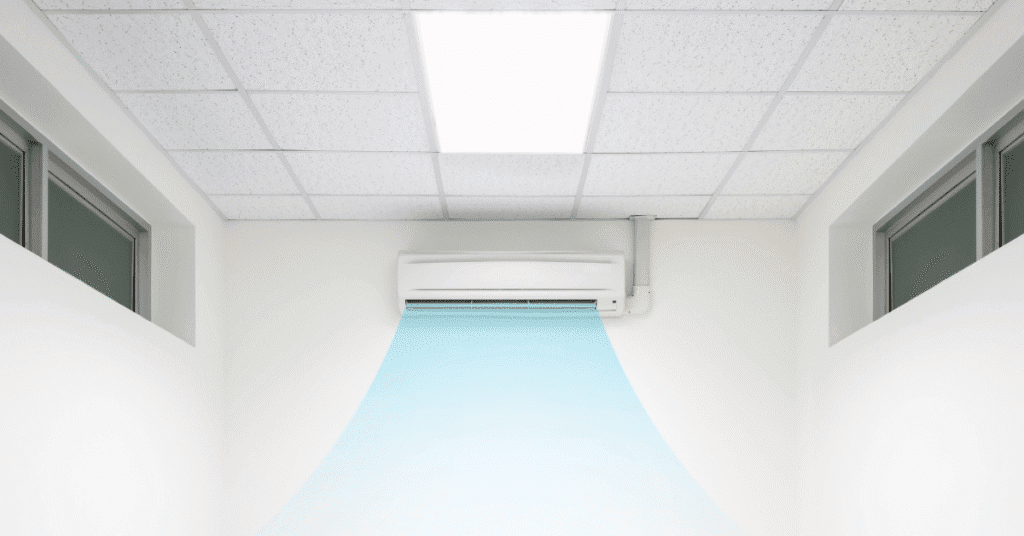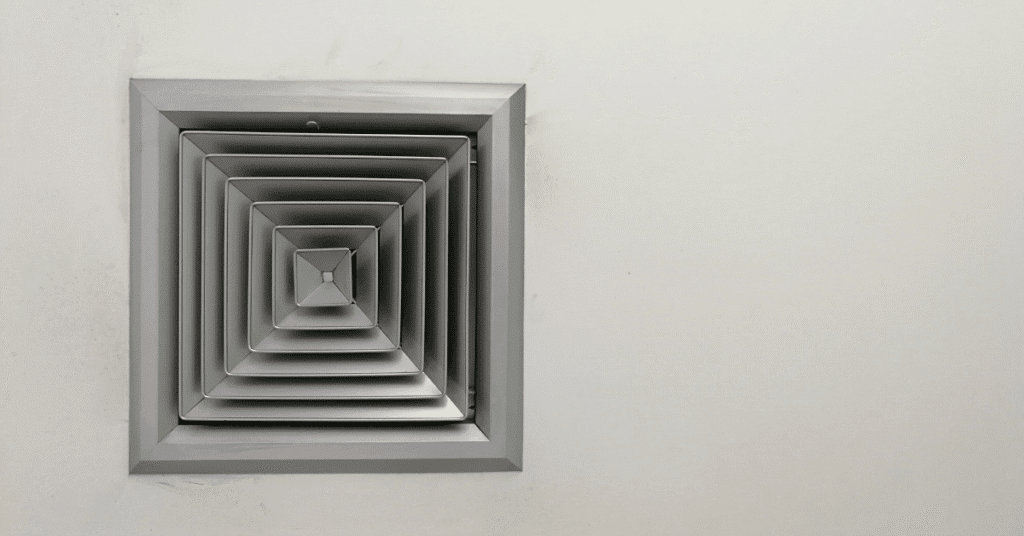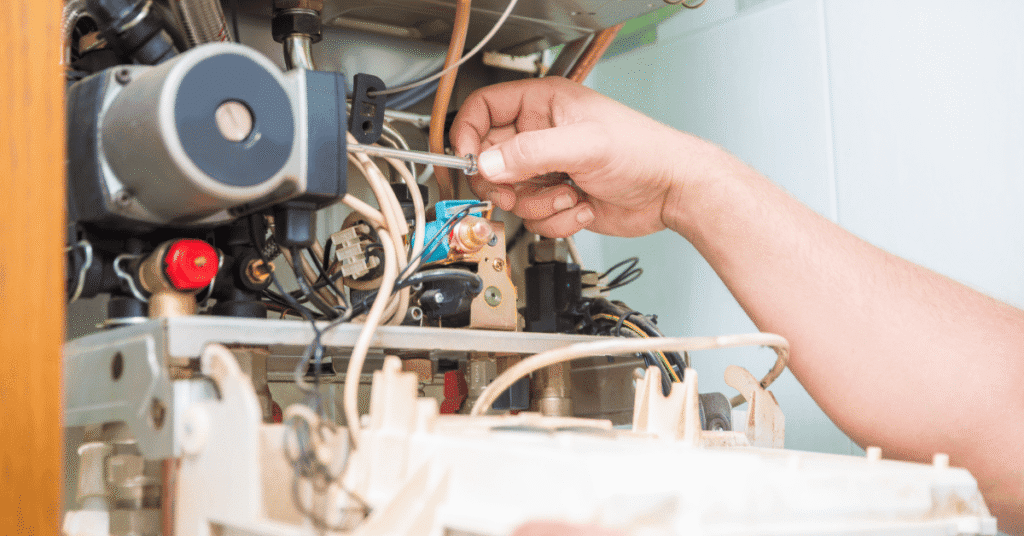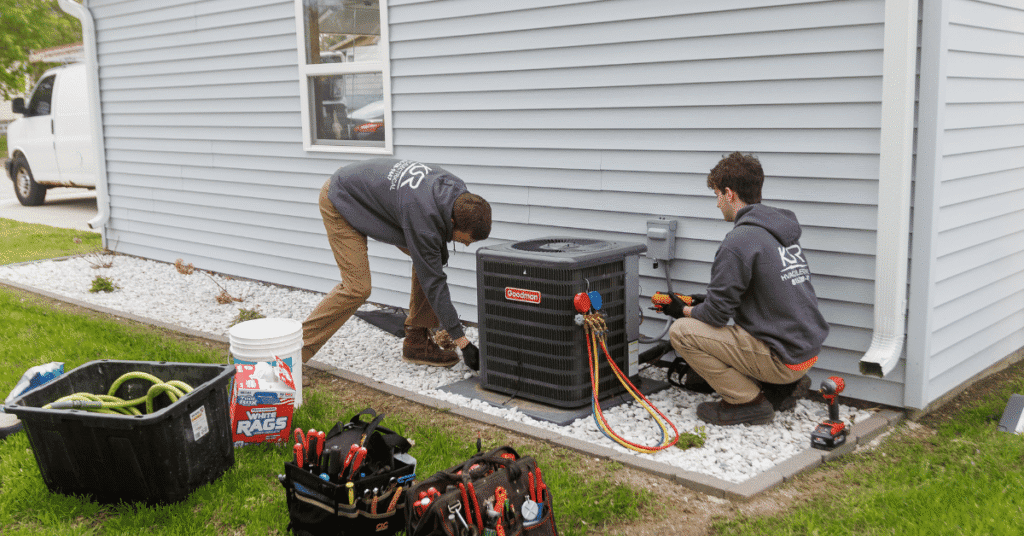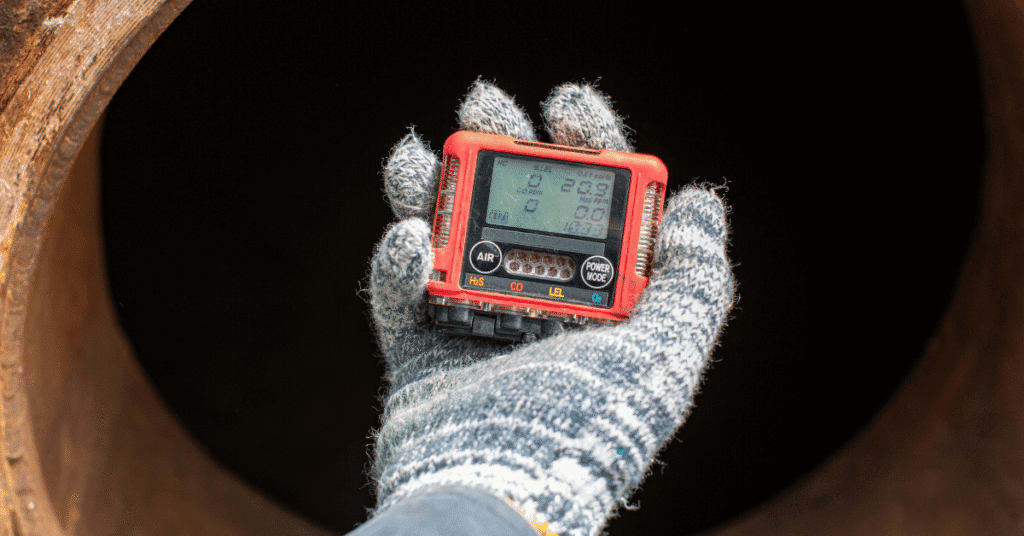Ways to Detect a Gas Leak: Gas leaks are hidden dangers that can silently threaten your home and loved ones. While natural gas is commonly used for heating, cooking, and powering certain gas appliances, even a small leak can lead to fire hazards, natural gas poisoning, or health problems. Recognizing the warning signs of a gas leak early is essential for protecting your home and family.
At KSR HVAC & Electrical, LLC in Minonk, Illinois, our technicians are trained in gas leak detection, gas line repair, and the safe installation of natural gas systems. In this guide, we share eight reliable ways to detect a natural gas leak and the steps you should take to keep your home safe.
Why It’s Important to Detect Gas Leaks Early
Ways to Detect a Gas Leak: A natural gas leak poses serious risks. Natural gas is highly flammable, and when a leak occurs in enclosed areas, the amount of gas in the air can quickly reach dangerous levels. This can lead to explosions, fires, and health problems caused by gas exposure.
Gas leaks can cause physical symptoms like headaches, dizziness, or nausea. Since gas is naturally odorless, gas companies add mercaptan, a chemical that smells like rotten eggs, to provide an early warning. Detecting a gas leak early helps prevent harm and keeps your home safe.
1. Smell of Rotten Eggs
One of the easiest ways to detect a natural gas leak is by its odor. While gas is naturally odorless, mercaptan gives it a strong smell like rotten eggs or sulfur.
What to do if you smell natural gas:
- Evacuate your home immediately and move to a safe location.
- Do not use electronics, light switches, or matches.
- Contact your gas company or call a professional technician from outside the home.
2. Hissing or Whistling Sounds
If you hear a hissing or whistling sound near gas lines, gas appliances, or valves, it can indicate a leak is present. These sounds around gas appliances are signs of gas escaping under pressure.
Common areas to check:
- Around furnaces, boilers, or water heaters
- Near stoves, ovens, or other gas equipment
- At the gas meter or near gas lines outside
3. Dying or Discolored Plants
An underground gas leak can reduce oxygen in the soil, killing plants. This is a potential leak indicator even before you smell gas.
Warning signs can help identify leaks:
- Rings of dead grass near gas lines
- Indoor plants wilting near gas appliances

4. Bubbles in Standing Water
Gas escaping underground may cause bubbles in puddles or wet areas outside. This soapy water-like effect can also be replicated indoors during a water test by using soapy water around joints to detect leaks.
If bubbles are present in one spot consistently, call a professional for leak detection.
5. Physical Symptoms in People or Pets
Gas leak symptoms can mimic common illnesses. Natural gas exposure reduces oxygen in the air and can cause symptoms like:
- Headaches, fatigue, or dizziness
- Nausea or vomiting
- Shortness of breath or chest pain
If symptoms improve after leaving your home, a natural gas leak could be the cause.
6. Unusually High Gas Bills
A sudden rise in your gas bill without changes in usage can indicate a potential gas leak. Gas leaks can make appliances run inefficiently, leading to higher costs.
Check for:
- Year-over-year usage comparisons
- Signs of inefficient gas appliances
- A gas meter running when no appliances are on
7. Carbon Monoxide or Gas Detectors Going Off
Gas leak detectors and CO detectors are specifically designed to detect dangerous levels of natural gas. They provide an early warning, often before symptoms appear.
Best practices:
- Install detectors near bedrooms, kitchens, and gas equipment
- Test monthly and replace batteries annually
- Choose models that detect natural gas, propane, and CO
8. Fogged Windows Near Gas Appliances
Fogged or condensed windows inside your home can signal incomplete combustion or gas leaks around gas appliances.
Areas to monitor:
- Kitchen windows near stoves
- Garage or basement windows near furnaces or boilers

What to Do If You Suspect a Gas Leak
Ways to Detect a Gas Leak: If you suspect a gas leak in your home:
- Evacuate your home to a safe location immediately
- Avoid flames, sparks, or using electronics
- Contact your gas provider or call a professional technician
- Do not attempt gas line repair yourself gas leaks can cause serious harm
How KSR HVAC & Electrical Helps Protect Your Home
Ways to Detect a Gas Leak: Our licensed technicians handle:
- Gas line inspections, cleaning, and repair
- HVAC equipment installation and servicing (Daikin, Goodman, Amana)
- Generator installation (Generac-certified)
- Indoor air quality solutions
We serve Minonk and surrounding Central Illinois communities, keeping your home safe and comfortable.
Preventing Future Gas Leaks
Ways to Detect a Gas Leak: To protect your home and loved ones:
- Schedule yearly cleaning, inspection, and installation checks for gas appliances
- Learn how to shut off your gas supply
- Install gas leak detectors and maintain them regularly
- Teach family members the warning signs of a gas leak
